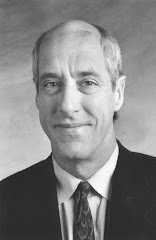POLITICS / JOHN MAGINNIS
NOVEMBER 5, 2008
Sen. Mary Landrieu won her third term by more votes than her previous two winning margins combined, though her race against Treasurer John Kennedy got tighter and bumpier the closer they came to the finish line.
An independent poll done for TV stations in the final week showed Landrieu starting to pull away and Barack Obama closing the gap in Louisiana. Neither happened. The six-point lead Landrieu ended with is about where she started in the first polls a year ago.
Despite President-elect Obama's historic victory, the ceiling for African-American candidates in this state only inched upward to 40 percent. The previous high was Cleo Fields' 36.5 percent showing against Mike Foster in the 1995 governor's race. In her first election, in 1996, Landrieu received 75,000 fewer votes than Bill Clinton, whereas this year she won 200,000 more votes than Obama.
Landrieu was supposed to be more vulnerable because of the post-Katrina depopulation of her New Orleans base. Yet while 50,000 fewer votes were cast in the city this time compared to 2004, Landrieu beat Kennedy there 7-1 with an 86,000 vote margin, the bulk of her 128,000 lead statewide.
Two things that worked for Kennedy toward the end, but not enough, were fear of Obama's Washington and the Bobby bump.
Perhaps the Republican's most effective ad laid out the case that because the Democrats were about to win a veto-proof Congress (they didn't), Louisiana needed to send a firewall to the Senate instead of more fuel for the liberal majority.
Gov. Bobby Jindal's late endorsement of Kennedy helped the candidate some but probably did more for the governor. He demonstrated to national Republicans that he will put his name on the line for the party, even in a losing effort, which he can claim to have made closer. Yet he didn't go overboard and personally campaign for Kennedy or criticize Landrieu, who is now his sole pipeline to the national treasury.
His greater partisan service was endorsing Congressman-elect Bill Cassidy in the 6th District, one of only two Republicans in the country to oust Democratic incumbents.
The National Republican Campaign Committee and an independent expenditure by a local contractor combined to do a number on Congressman Don Cazayoux. But the short-lived incumbent (elected in May, he doesn't even get one Washington Mardi Gras) can really thank his former colleague and former Democrat Michael Jackson, an African-American state legislator who ran as an independent. Jackson's 12 percent showing enabled Cassidy to win by a plurality.
Jackson resented that national Democratic donors ignored him in the spring special election and so were continuing to take the party's African-American base for granted. His was a costly point that some local Republicans helped him to make by putting up over half of Jackson's campaign warchest.
The national Democratic party did get behind state Sen. Don Cravins Jr., who ran a spirited campaign but was defeated soundly by Congressman Charles Boustany in the 7th District.
Special recognition goes to two first-time congressional candidates, Democrat Jim Harlan in the 1st District and Chris Gorman in the 4th, who combined spent $3 million of their own money in losing causes.
Congressman Steve Scalise was easily re-elected in the 1st, while the 4th now becomes a national party battleground on Dec. 6. Democrat Paul Carmouche will try to take over a GOP seat against Dr. John Fleming, who must now consolidate Gorman supporters behind him after the bitter party contest.
Unfortunately for Louisiana's spiffy new ethical image, the other race to be decided next month is in the New Orleans-based 2nd District, where indicted Congressman Bill Jefferson, who beat fellow Democrat Helena Moreno, will be heavily favored against Republican Joseph Cao and two others. Even blacks who want Jefferson gone would rather the Justice Department do it, or have a jury clear him, than to cede the seat to one of another color. As with racial voting patterns statewide, in a year of change, some things haven't.
Thursday, November 6, 2008
Subscribe to:
Post Comments (Atom)

No comments:
Post a Comment